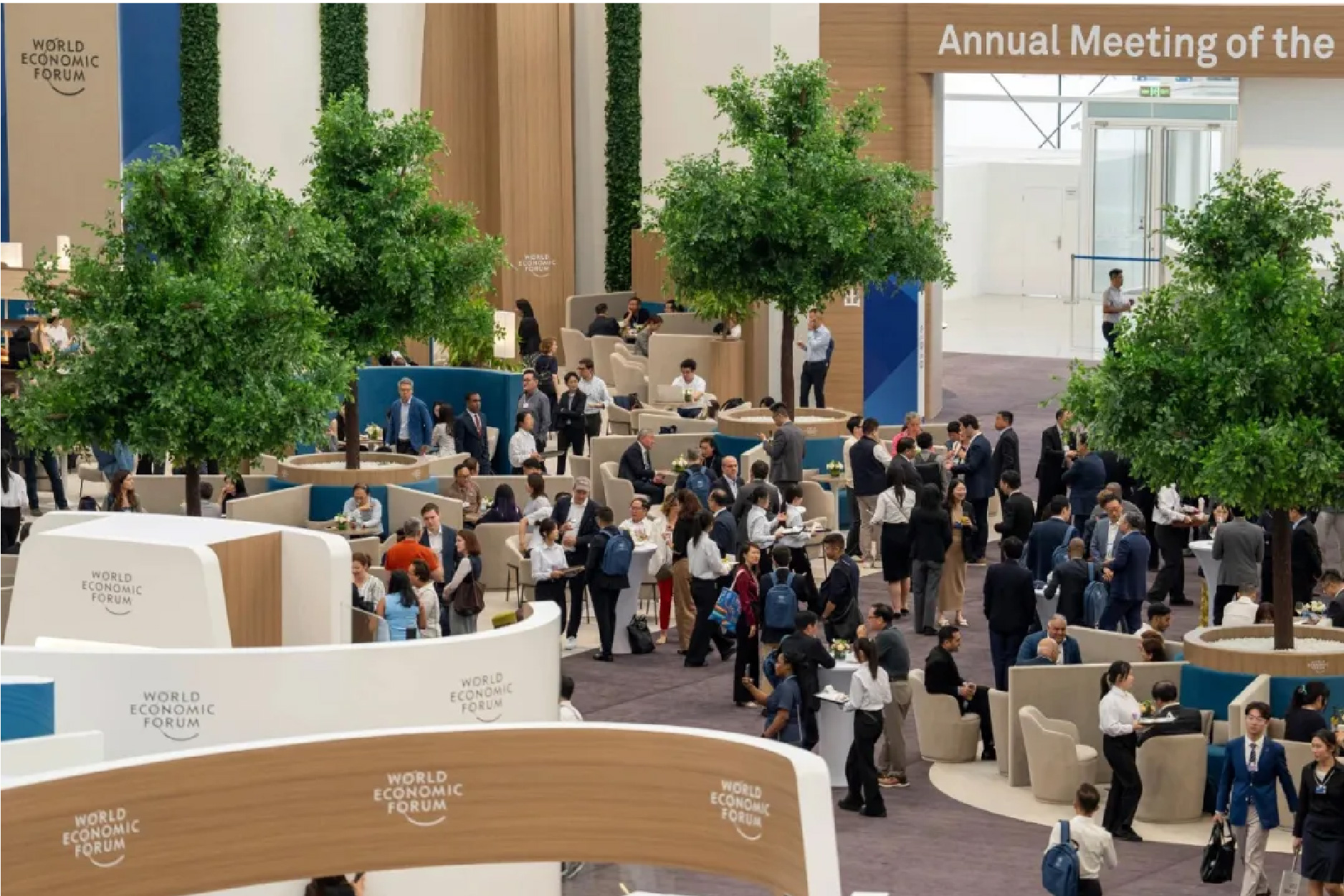
|
Summer Davos 2025 | June 24 to 26, 2025 | Tianjin, China |
The 16th Annual Meeting of the New Champions, commonly known as the Summer Davos Forum, took place from June 24 to 26, 2025, in Tianjin, China. Hosted by the World Economic Forum (WEF) , this year’s theme, “Next-Generation Entrepreneurship,” attracted over 1,700 political, business, academic, and innovation leaders from more than 90 countries and regions. The forum focused on five pillar topics: decoding the global economy, China outlook, transforming industries, investing in people and the planet, and new energy and materials. Together, participants explored how technological transformation and global resilience can shape a more sustainable economic future.
Originating in the Swiss town of Davos, the World Economic Forum has evolved into a globally influential platform for high-level international dialogue. Mirek Dušek, Executive Director of the WEF, remarked during the forums press conference that “global disruptions are reshaping industries and value chains. In this rapidly changing global environment, innovation, entrepreneurship, and cooperation are indispensable for maintaining long-term competitiveness. Emerging technologies such as artificial intelligence (AI) are among the forum’s central topics.”
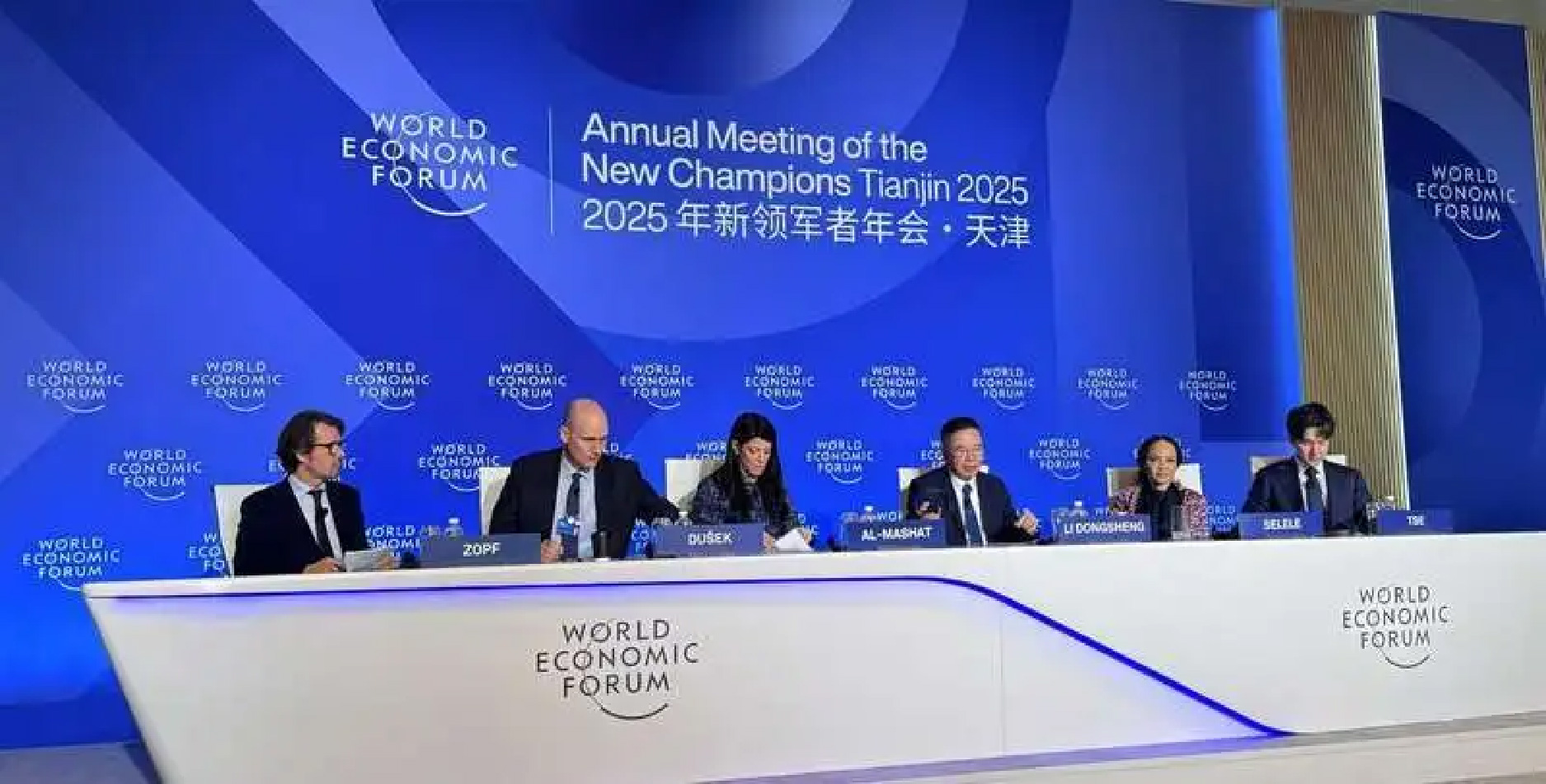
|
Summer Davos 2025 Opening Session |
Representing the School of Management at Zhejiang University (#ZJUSOM), Professor WU Xiaobo , Zhejiang Provincial Distinguished Expert and Chief Scientist of the Ruihua Institute for Innovation Management, was invited to the forum and served as moderator of the thematic session “AI-Powered Factory Transformation” held on June 24.
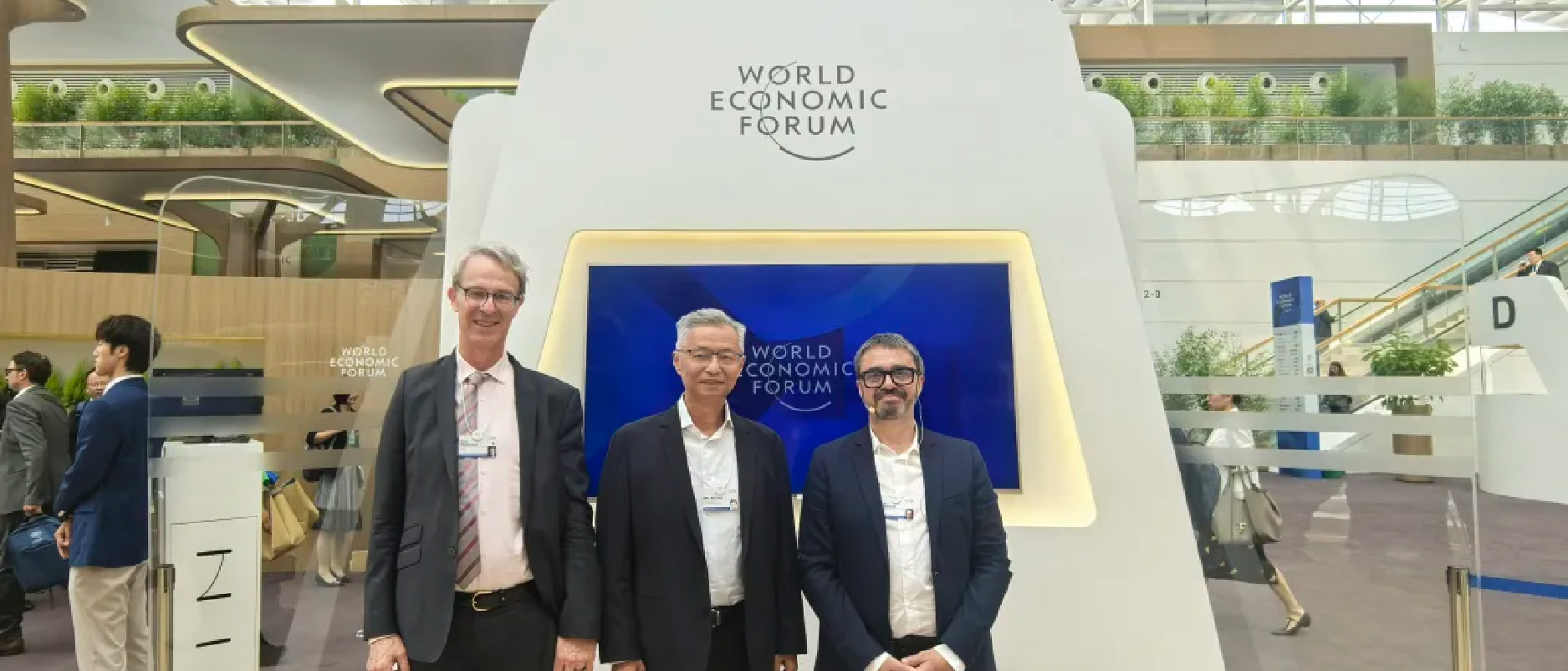
|
Mr. Clas Neumann (first from left), Professor WU Xiaobo (second from left), and Mr. Cyril Perducat (first from right) |
The session addressed a critical challenge: How companies can harness AI and other emerging technologies to enhance production efficiency and strengthen competitiveness amid increasingly complex global industrial structures. Professor WU engaged in discussions with two distinguished guests - Clas Neumann, Head of SAP’s Global Lab Network, and Cyril Perducat, Senior Vice President and Chief Technology Officer at Rockwell Automation.
Their discussion explored how AI technologies can catalyze productivity breakthroughs and sustainable competitiveness. The panel also tackled strategic themes like autonomous production systems, smart manufacturing, and resilient operations—emphasizing the need to integrate technological innovation with robust operational frameworks to rebuild industrial strength.
Professor WU opened the session by noting that the wave of digitization and emerging technologies is reshaping global manufacturing.
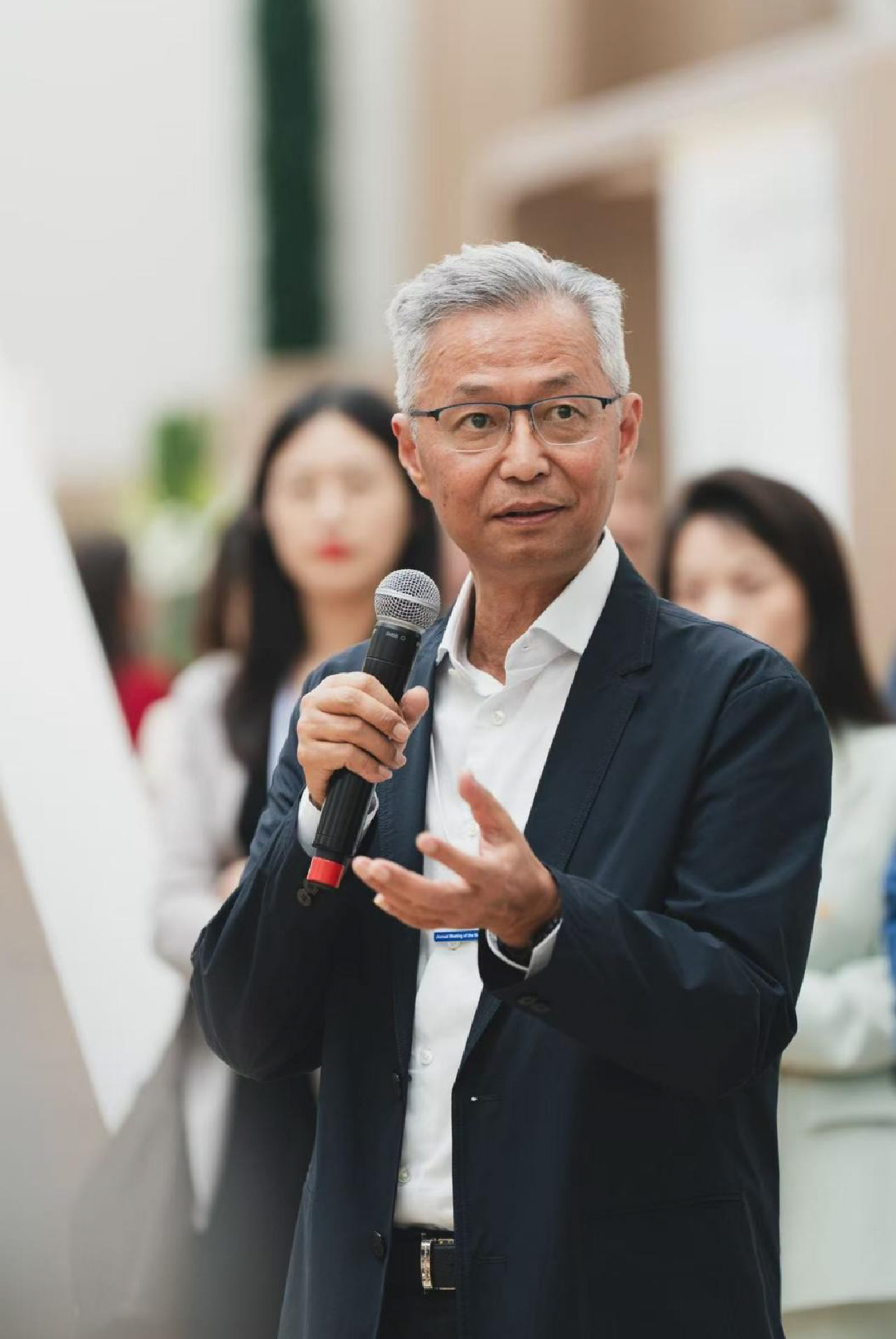
|
Professor WU moderating the AI-powered factory session |
|
“ |
Factories are evolving from passive, JIT-based mechanical organizations into open, interactive, and innovation-driven organic systems,” he stated. “This is a profound managerial revolution. Both Chinese and global enterprises must seize the moment and accelerate their transition to smart manufacturing.” |
The panel went on to examine how virtual and physical AI applications, intelligent collaborative robots, quantum computing, and new material research are revolutionizing manufacturing. The dialogue painted a forward-looking vision for AI-powered factories in 2030.
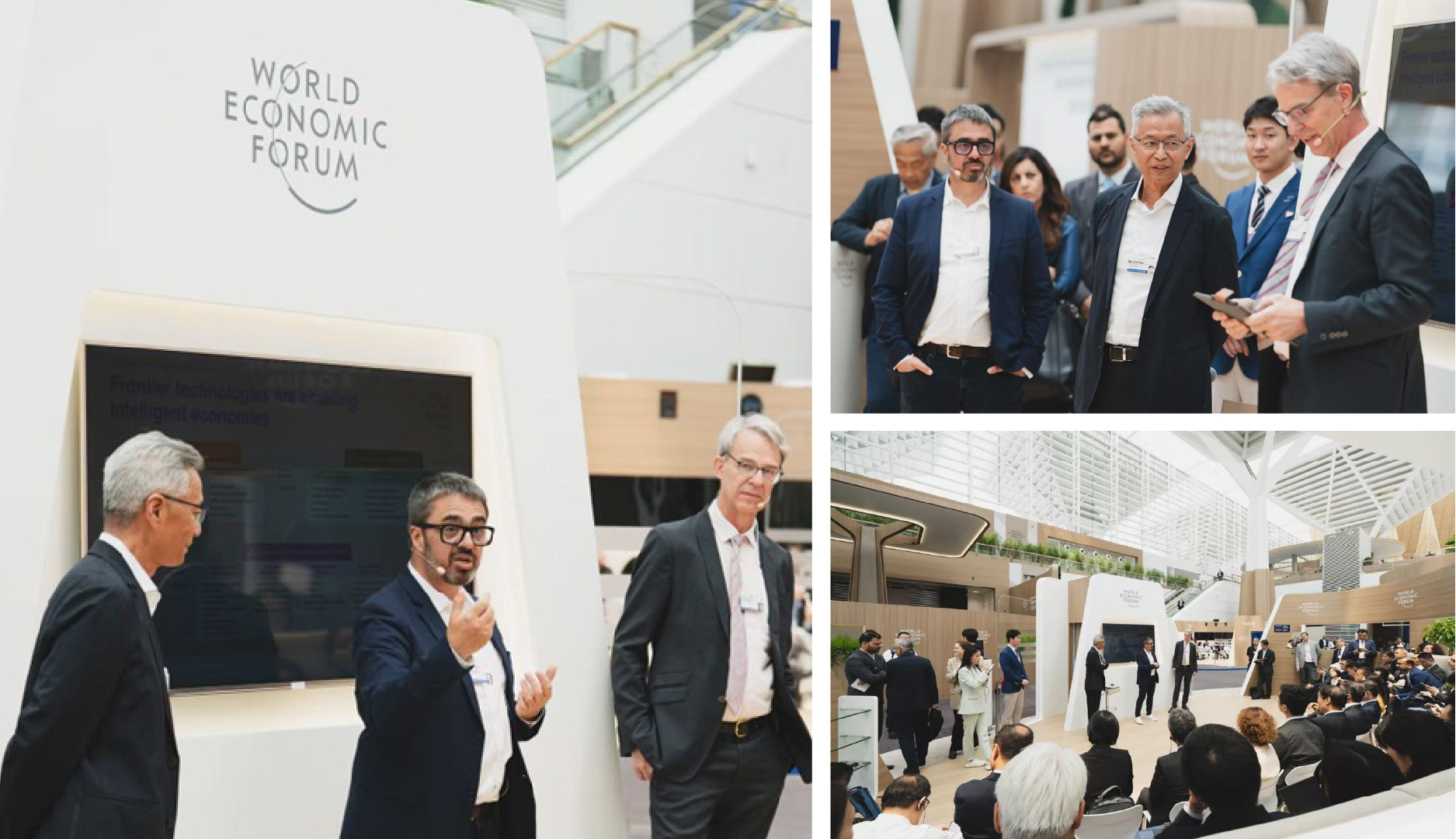
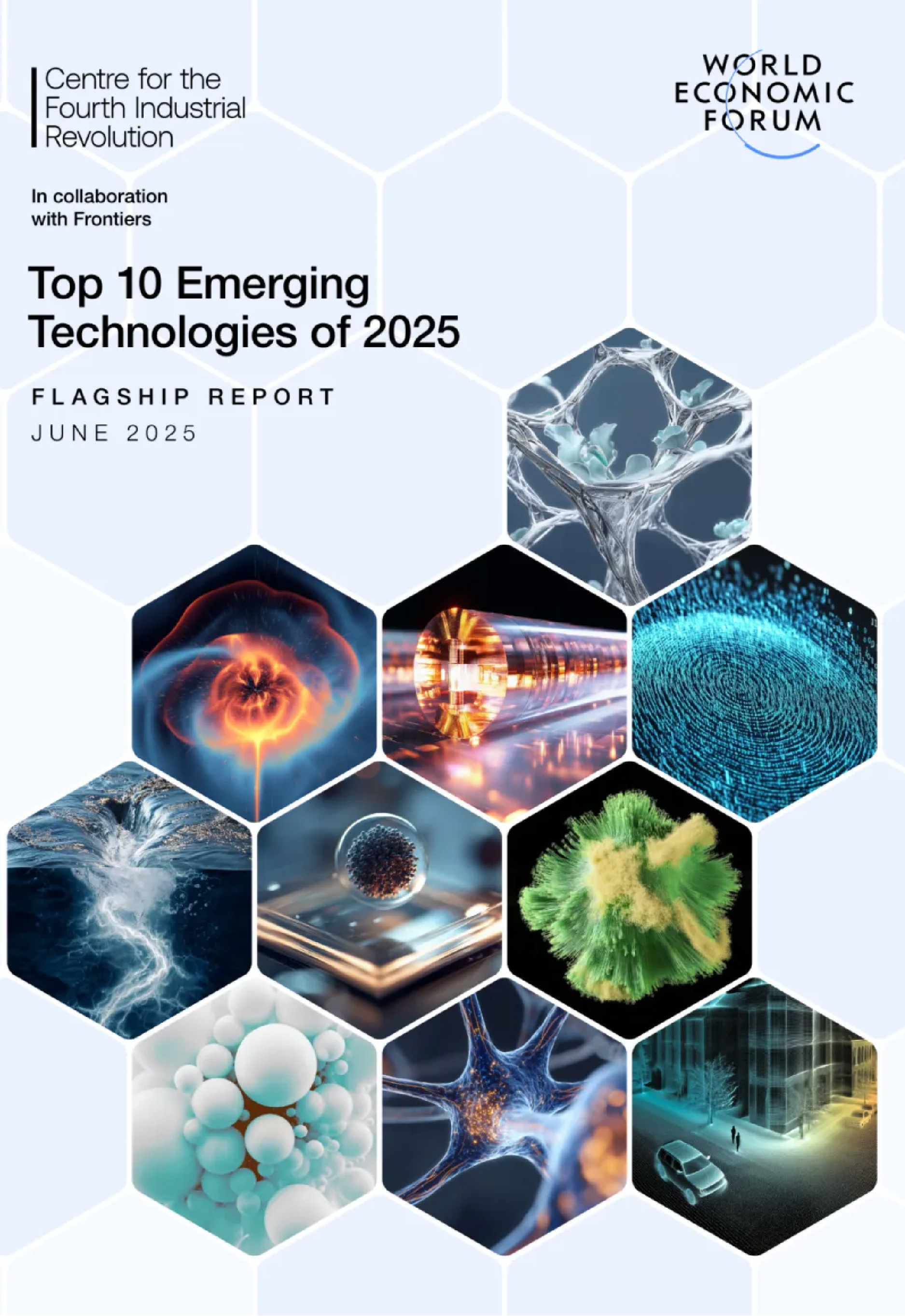
|
Technology Trends Report Launch at WEF |
A highlight of the forum was the release of WEF’s Top 10 Emerging Technologies of 2025 , the 13th edition of this influential list. Selected through multiple rounds of evaluation by over 300 scientists worldwide, the technologies identified promise transformative potential in the next 3–5 years. They span four major domains: trust and security in a connected world, sustainable industry, health and biotechnology, and energy-material integration.
01 | Collaborative Sensing – Networks of interconnected sensors enabling real-time data sharing between vehicles, cities, and emergency services, enhancing safety and crisis response.
02 | Generative Watermarking – Invisible tagging for AI-generated content to identify authenticity and combat misinformation online.
03 | Green Nitrogen Fixation – A new fertilizer production method using electricity instead of fossil fuels, reducing pollution and emissions in agriculture.
04 | Nanozymes – Synthetic materials mimicking natural enzymes, offering greater performance at lower costs for applications in environmental cleanup, healthcare, and manufacturing.
05 | Engineered Living Therapies – Use of designed beneficial bacteria inside the body for treatment, lowering long-term medical costs.
06 | GLP-1 Drugs for Neurodegenerative Diseases – Originally for diabetes and weight loss, these drugs show potential in treating Alzheimer’s and Parkinson’s diseases.
07 | Autonomous Biochemical Sensors – Small intelligent sensors enabling 24/7 monitoring of health or environmental changes, supporting early detection of disease or pollution.
08 | Structural Battery Composites – Materials that both store energy and bear weight, enabling lighter and more efficient electric vehicles and aircraft.
09 | Osmotic Power Systems – Devices that generate electricity by harnessing the energy difference at saltwater and freshwater boundaries, offering stable green energy for coastal regions.
10 | Advanced Nuclear Technologies – Compact, next-generation nuclear reactors and alternative cooling systems offering safer, lower-cost clean energy essential for powering AI-driven electrification.
- Thank you, Professor WU Xiaobo, for representing the School of Management and Zhejiang University at the 2025 Summer Davos Forum, and for your valuable contribution to the international conversation on the future of technology and manufacturing.